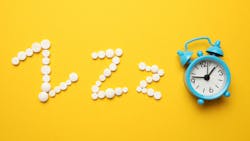People who have sleep problems may be more likely to have a stroke, according to a study published in the April 5, 2023, online issue of Neurology, the medical journal of the American Academy of Neurology. Sleep problems included getting too much or too little sleep, taking long naps, having poor quality sleep, snoring, snorting and sleep apnea. In addition, those who had five or more of these symptoms had an even greater risk of stroke. The study does not show that sleeping problems cause stroke. It only shows an association.
The international study involved 4,496 people, including 2,243 people who had a stroke who were matched to 2,253 people who did not have a stroke. The average age of participants was 62.
Participants were asked about their sleep behaviors including how many hours of sleep they got, sleep quality, napping, snoring, snorting and breathing problems during sleep.
People who slept for too many or too few hours were more likely to have a stroke than people who slept an average number of hours. A total of 162 of those who had a stroke got less than five hours of sleep, compared to 43 of those who did not have a stroke. And 151 of those who had a stroke got more than nine hours of sleep a night, compared to 84 of those who did not have a stroke.
Researchers found that people who got less than five hours of sleep were three times more likely to have a stroke than those who got seven hours of sleep on average. People who got more than nine hours of sleep were more than two times as likely to have a stroke than those who got seven hours a night.
People who took naps longer than one hour were 88% more likely to have a stroke than those who did not.
Researchers also looked at breathing problems during sleep, including snoring, snorting and sleep apnea. People who snored were 91% more likely to have stroke than those who did not and people who snorted were nearly three times more likely to have a stroke than those who did not. People with sleep apnea were nearly three times more likely to have a stroke than those who did not.
Following extensive adjusting for other factors that could affect the risk of stroke such as smoking, physical activity, depression and alcohol consumption, the results remained similar.

